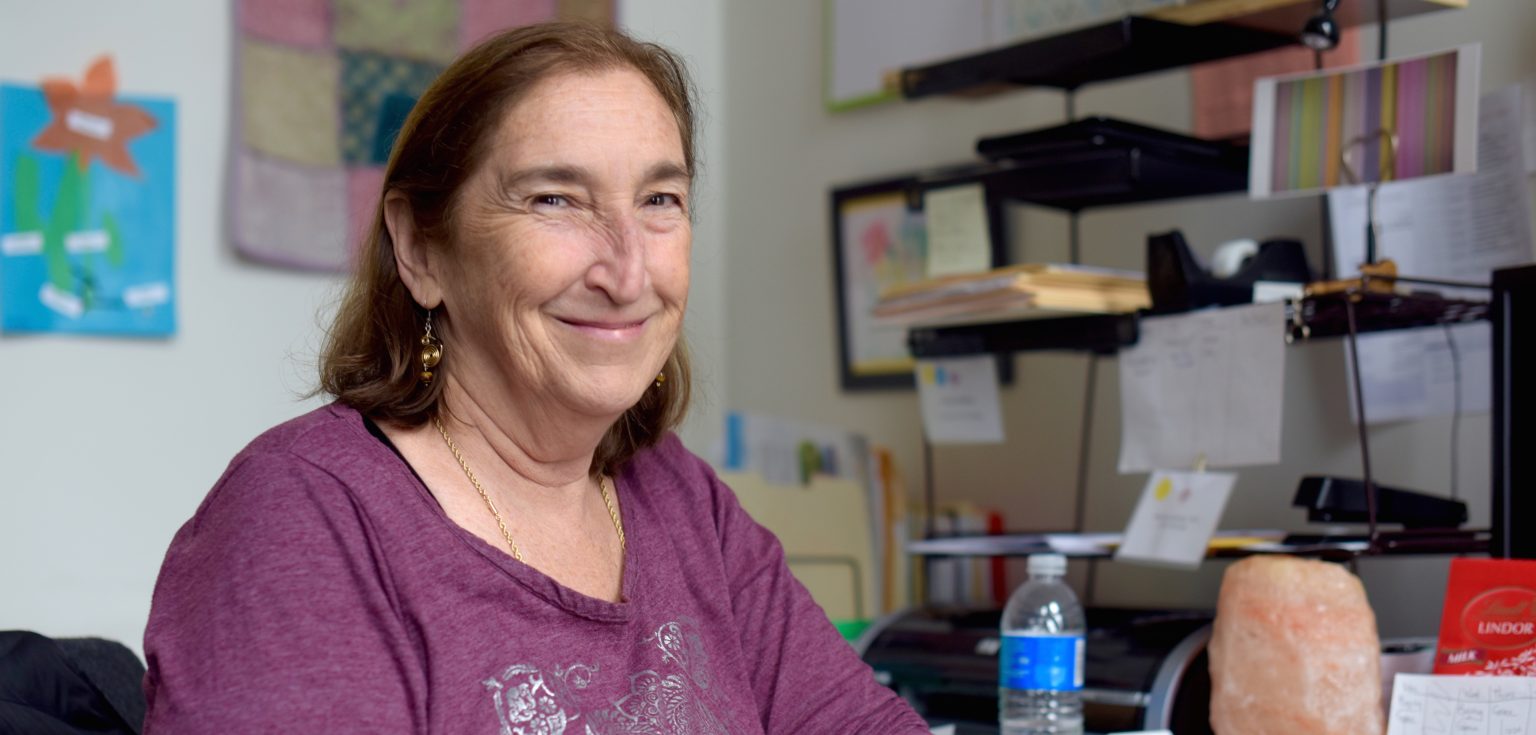“Teachers are not just thinking about math, reading, and writing,” said Marilyn Bisberg, a clinical instructor, adviser, and professor for Early Childhood/Early Childhood Special Education programs. “They’re thinking about vulnerability. How do I protect the children in my classroom, and how do I protect myself? And where do I stand on all of this, in the political climate?”
Last March, a former student sent Bisberg an email. The young woman, an assistant teacher, wrote that her head teacher had announced they were going to prepare for a potential school shooting through practice drills. The head teacher’s nephew had been at Marjory Stoneman Douglas High School during the February massacre.
“She [the assistant teacher] was totally distraught by it. That angst can break down her ability to feel empowered to help in some way,” said Bisberg. “She said, ‘We need to talk about this in higher ed—preparing teachers to be aware of this new part of their teaching.’”
“How can we prepare teachers better in relation to their role as teachers in the social and emotional area?” Bisberg said.
Encouraging Emotional Education in University Curriculum
For years, colleges and universities have overlooked social and emotional education in the curriculum for teacher training, said Bisberg. Instead of making it a critical component in course content, many schools make it optional. Most teachers across the nation gain these skills through workshops after they graduate. But while in their teaching programs, said Bisberg, they should learn more about the relationship between teachers’ emotions, motivation, regulation, and stamina and how that interplay affects children’s learning and behavior.
The importance of social and emotional education is gaining traction across New York state. Last summer, New York became one of the first U.S. states to mandate mental health as part of health education in schools. And now, Bisberg is part of a team that’s trying to bring social and emotional teaching and learning—a critical aspect of mental health—to teacher education in colleges and graduate schools.
In 2016, Bisberg was introduced to Craig Bailey, Ph.D., Director of RULER for Early Childhood and an associate research scientist at the Yale Center for Emotional Intelligence. The center has a novel evidence-based approach called RULER (recognizing, understanding, labeling, expressing, and regulating emotion), a method that develops emotional intelligence not only in students, but also the adults involved in their education—teachers.
“There may be many different curriculum ideas in terms of teaching kids how to handle their emotions, but RULER is unique in that it includes the adult in the process,” Bisberg said.
Now, Fordham’s Graduate School of Education and the Yale Center for Emotional Intelligence are working together to bring RULER-inspired ideas to higher education and pre-service teacher preparation.
In spring 2017, the Graduate School of Education piloted a series of workshops as a semester-long course on social and emotional teaching and learning. Bailey came to Fordham and taught a cohort of students about the importance of authentic listening and empathy. He also engaged students in role-play and self-reflective activities to help them become more in tune with their own emotions.
In spring 2018, Bailey came back to present his workshop. This time, he didn’t just present to GSE students—faculty also participated.
Promoting Strategies for Teachers and Children
Going forward, Bisberg hopes to bring this social and emotional education to more students at GSE, offering them strategies they can use to understand their own emotions as they prepare to support the children in their future classrooms. This school year, she’s bringing Bailey’s lessons to a new group of GSE students in the early childhood program to further research the effect that Bailey’s strategies have had on teacher preparation. After analyzing GSE student anecdotes and short- and long-term data, she will determine how to best integrate social and emotional education in GSE classes and create additional curriculum that supports it.
Ultimately, she hopes this will become a bigger discussion in higher ed circles and that this type of education is no longer relegated to only professional development.
“It’s not just about pre-math, pre-writing, pre-reading for new teachers,” she said. “This is about us as people—as teachers.”


